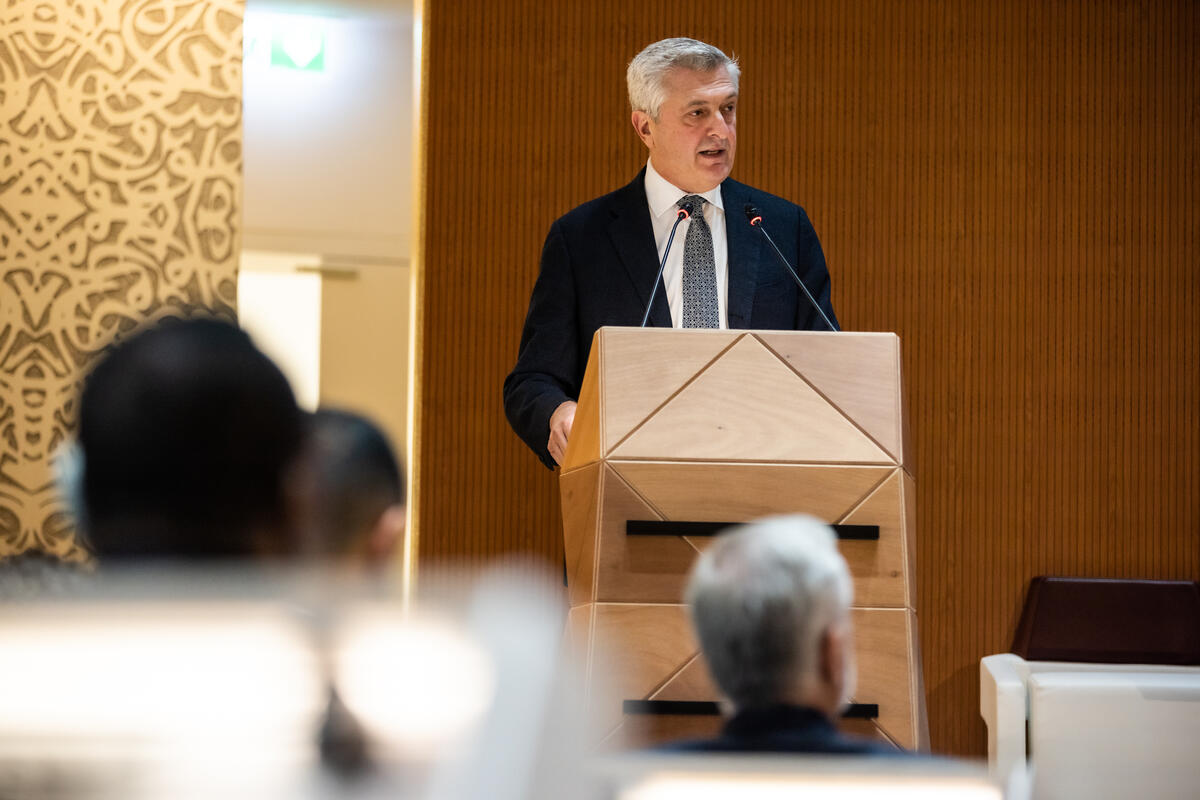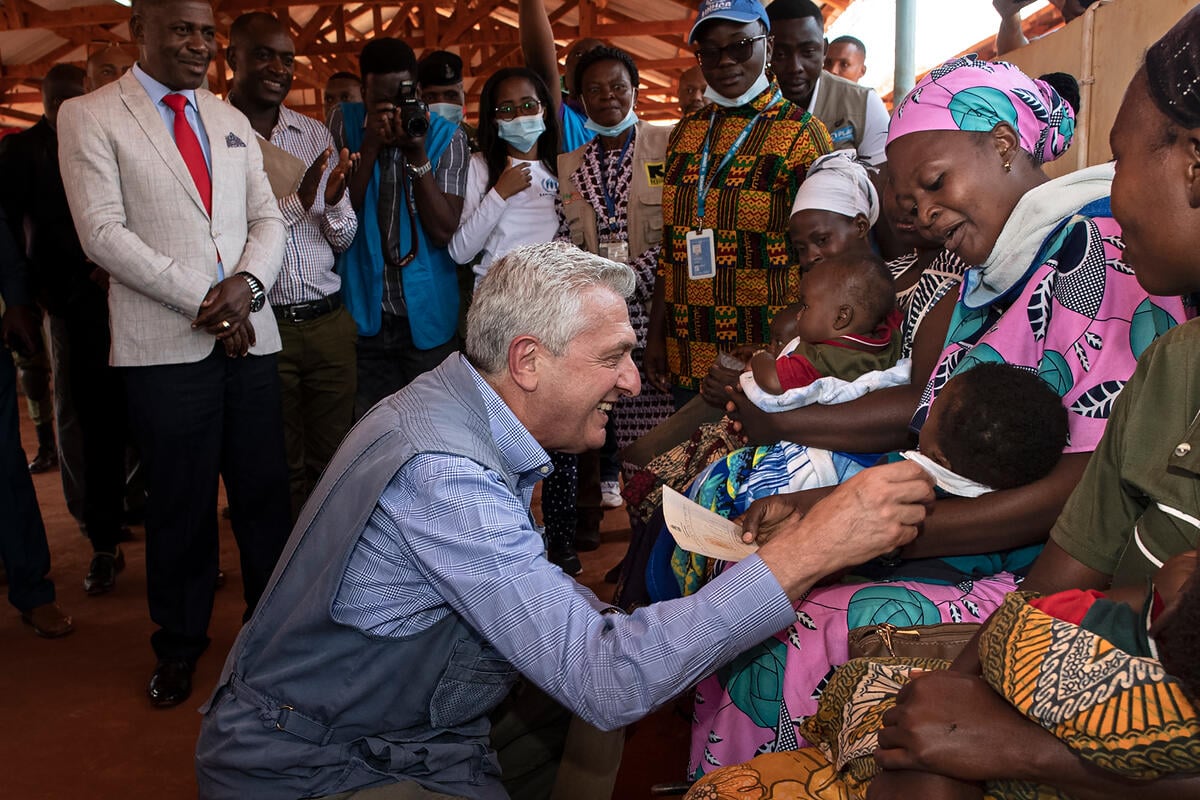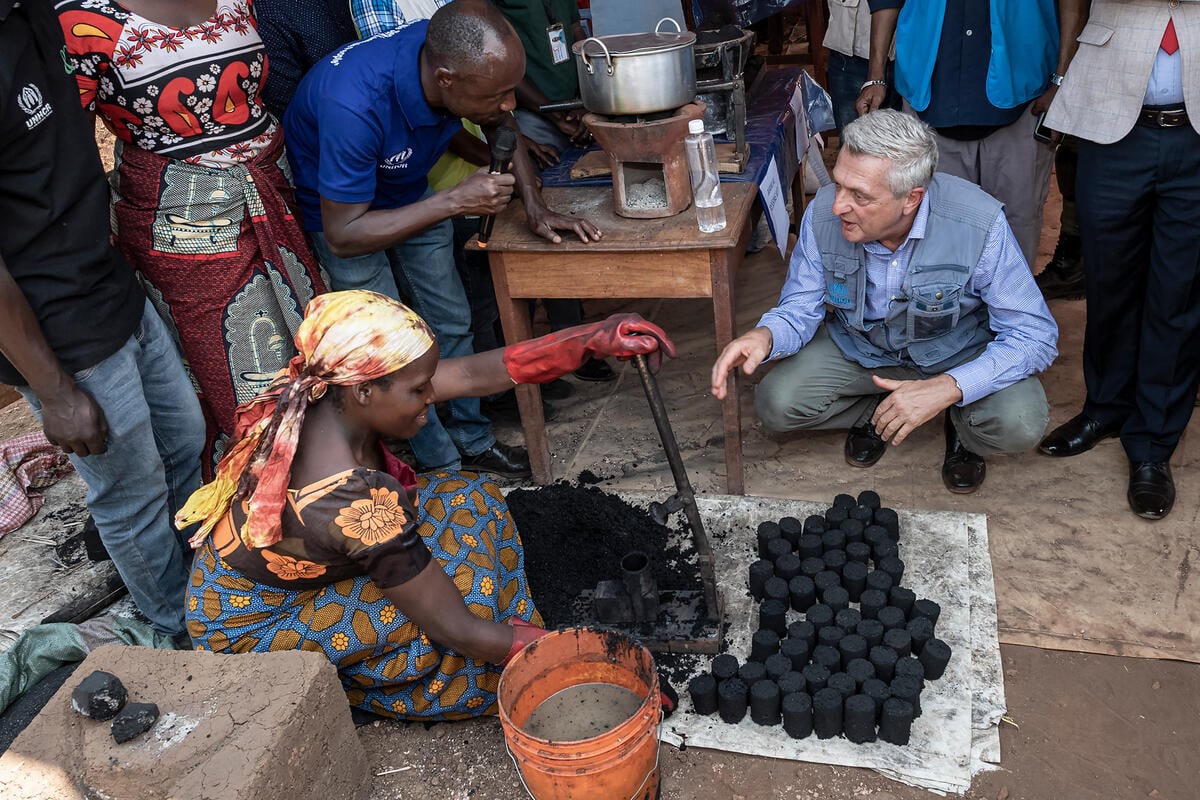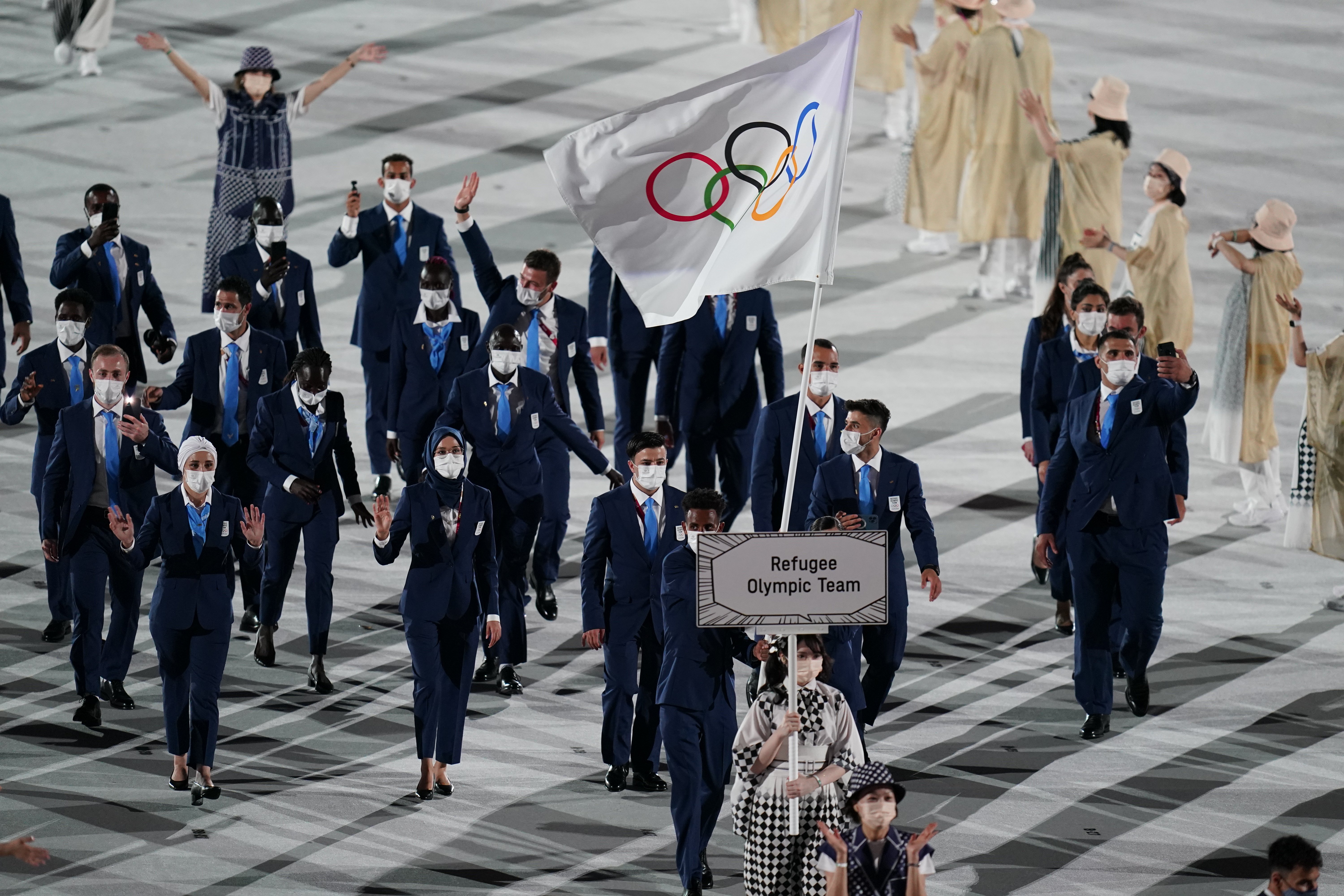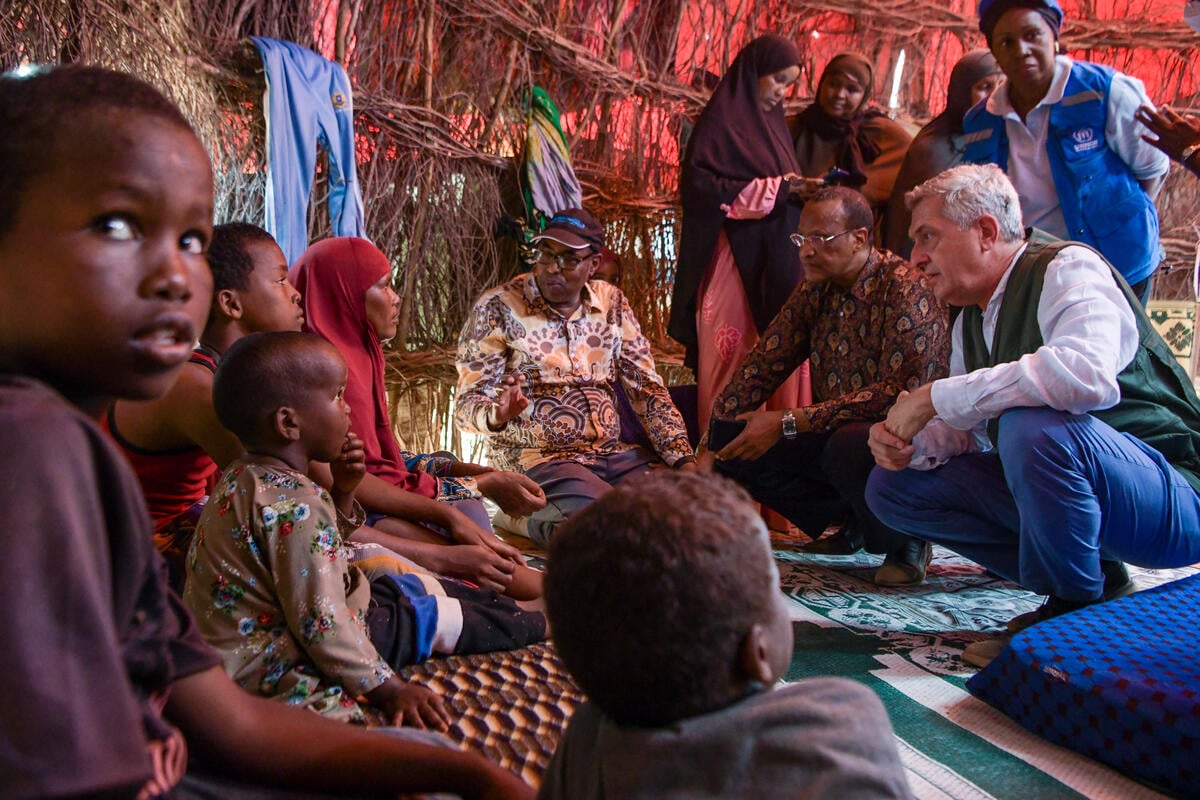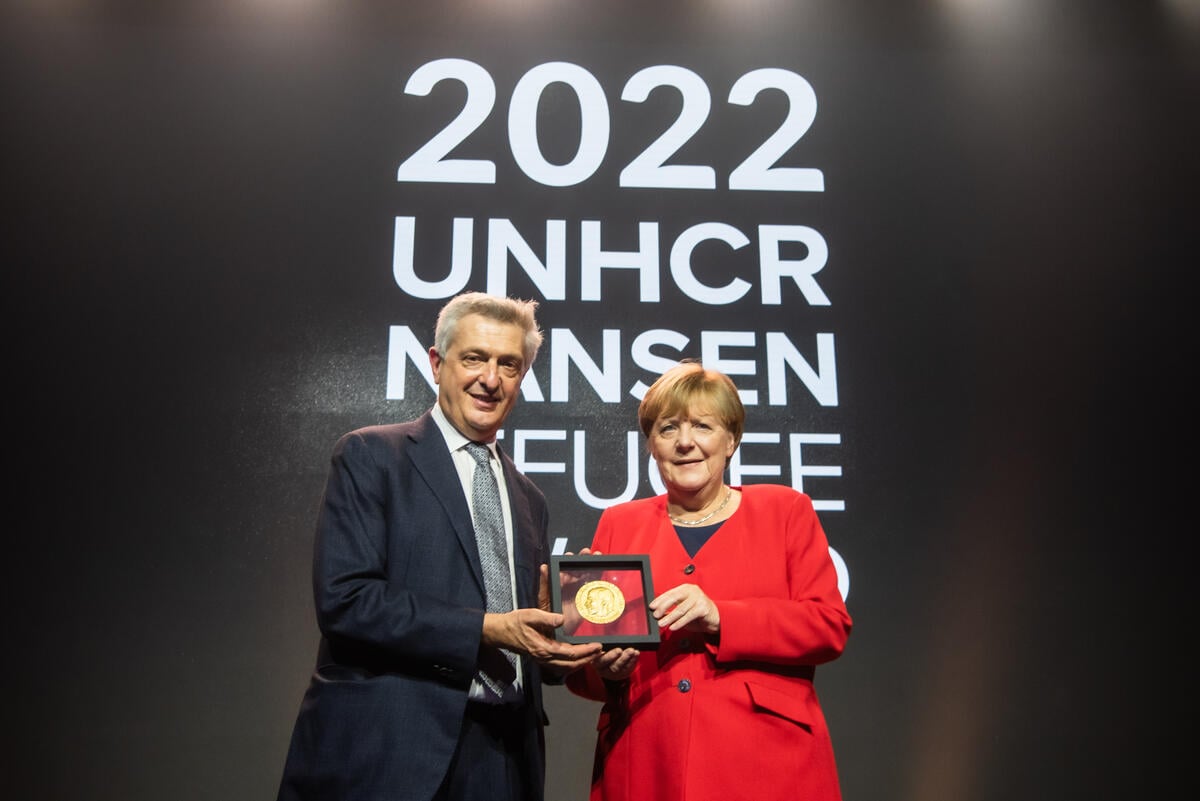Statement by the UN High Commissioner for refugees on Colombia's new temporary protection measure for Venezuelans
Statement by the UN High Commissioner for refugees on Colombia's new temporary protection measure for Venezuelans

Thank you very much Mr. President, ladies and gentlemen.
Mr. President, both you and the Secretary General used the term historical. I truly believe that here and today we are witnessing a gesture that is historic.
Latin America, as you know, has a significant history, also a painful one of exile and displacement. With this history, a document was born: the Cartagena Declaration, marking the “before and after” of asylum, solidarity and fraternity throughout the world. Mr. President, I believe that what you have announced today is one of the most important humanitarian gestures made on this continent since 1984, when the Cartagena Declaration was signed. I have just completed 5 years as High Commissioner for Refugees and I cannot think of another event of this magnitude or a precedent as critical as providing temporary protection for Venezuelans during my mandate.
On behalf of the United Nations, the Secretary-General and our partner the International Organization for Migration, working together with the local and national Government, on behalf of all, thank you Mr. President.
Dear President,
Colombia’s offer to provide temporary protection to Venezuelans on its territory for a ten-year period is a humanitarian gesture of an unprecedented scale in the region - and the entire world. This initiative is an extraordinary example of humanity, commitment towards human rights, and pragmatism.
Colombia hosts more than 37% of the approximately 4.6 million of Venezuelans who live across Latin America and the Caribbean after being forced to leave their country.
The temporary protection measure will address one of the biggest challenges facing the Colombian State and Venezuelans on its territory alike: the lack of any sort of regular status which affects close to one million Venezuelans currently living in the country.
This population works largely in the informal sector of the economy and is often confronted with abuse, exploitation and discrimination; this is particularly acute among women and children. The temporary protection status will make a significant difference in their lives, allowing them to contribute fully to Colombian society.
Latin America has been, as we know, one of the regions at the epicentre of the pandemic. All countries have faced enormous challenges at various levels, with impacts on their health systems, economies and employment rates. For most Venezuelan refugees and migrants, the impact has been devastating. Despite the efforts made by States in the region to ensure inclusion in national programmes, many Venezuelans have lost their livelihoods.
We all hope a comprehensive solution that addresses the political, socioeconomic and humanitarian challenges of Venezuela can be advanced. As such, in the current context, the decision to regularize hundreds of thousands of Venezuelans has even greater relevance. In addition to the legal protection for the Venezuelan population, registration will allow for a wider coverage of the COVID-19 vaccination.
As the President stated, documentation is critical for socio-economic inclusion. The Temporary Protection Status will allow Venezuelans to contribute actively to the national economy and the well-being of the communities that host them.
It goes without saying that the implementation of such a large-scale initiative will require significant investment in terms of time, logistics and resources.
Over the last several years, important efforts have been made by the international community to support States in responding to this crisis. Within the framework of the Refugee and Migrant Response Plan, we managed to double the funding between 2019 and 2020. Out of more than USD 700 million funds received for the region, nearly 46% was allocated for humanitarian assistance and support to communities in Colombia.
These efforts were boosted by the successful donors conference organized by Spain and the European Union last year to enhance the visibility of the crisis, mobilize humanitarian contributions and more importantly to engage development actors. Out of the USD 2.7 billion pledged during the Conference, approximately USD 2.1 billion comprised concessional loans from development banks. We are very confident that this process of cooperation and solidarity will continue - it has to continue and increase - with the organization of the next international donors conference co-convened by Canada next June.
I have assured President Duque of UNHCR’s commitment, together with the 70 partners of the inter-agency platform co-led by IOM in Colombia. Through this mechanism, we are ready to contribute with technical expertise, field presence, logistical capacity and resources to support the implementation of this critical initiative.
I will end by thanking our partners, as well as my team in Colombia, for their long-standing commitment to alleviating the suffering of the forcibly displaced. I also sincerely extend my deep appreciation to the President, the Government of Colombia and the people of Colombia for their generosity and enduring solidarity with refugees and migrants in this country.


